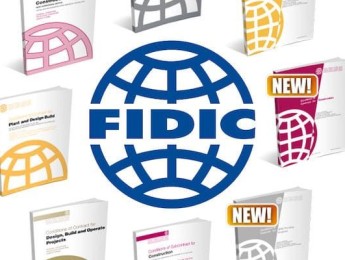This course teaches you to efficiently and effectively administer or manage a contract process. Contracts can be fraught with pitfalls and difficulties and have far-reaching legal implications. Therefore, it’s crucial to fully understand the legalities to ensure successful partnerships with vendors, service providers, and contracts in business life.
You will investigate the contract process, from creation to the most common clauses, and explain alternative structures and strategies. Finally, you’ll explore the methods and skills needed to successfully negotiate a contract, including handling any variations and claims that may arise. This course is required for anyone involved in contracting as part of their daily role, providing the foundation to deal with the hazards and pitfalls of creating and working with contracts.
Upon completion of this course, participants will be able to:
- Create Contracts
- Understand contract terms and legal impacts
- Understand and analyse the risks and obligations of contracts
- Get better contract outcomes
- Prepare for managing claims or disputes of contracts
- Control & negotiate variations to contracts
- Monitor the performance of contracts
- Understand contract provisions to reduce dispute risk
- Explore Contract default, including termination
This course is intended for
- Contract Professionals/Administrators
- Project Management Professionals
- Tendering, Purchasing and Procurement Professionals
- Procurement Officers
- Engineering, Operational, Finance, and Maintenance Professionals
- Contract Analysts
- Contract Engineers
- Supply Chain Management team members
- Anyone involved in running competitive procurement activities
This course is designed to accommodate various learning styles through face-to-face teaching in a classroom environment, ensuring participants can expand their knowledge and increase their skill set. The course features PowerPoint presentations, article reviews, other relevant materials, and group and individual exercises and discussions. There may also be some independent work set requiring the submission of articles to demonstrate understanding, as well as an end-of-course test. Note-taking is encouraged, and electronic devices are welcome for this purpose.
The course manual will be integral to the learning experience, providing references for future use. Participants are encouraged to ask questions and can spend one-on-one time with the tutor to address any issues. Additionally, the classroom environment offers the opportunity to network with peers in similar roles, enhancing the overall learning experience.
Day 5 of each course is reserved for a Q&A session, which may occur off-site. For 10-day courses, this also applies to day 10
Section 1: Contract Management Introduction
- Why we need contracts and why management is vital
- Basics of forming a contract
- Analysis of the contract requirements
- Formalities of contracts
- Contractual Structures/Hierarchy
- Cause and effect when contracts fail
- Defining the scope and specification of a contract
- Implications of Contract Types
- Cost and Pricing
- Fixed Price and Cost-reimbursement contracts
- Best practices
Section 2: Contract Risk Management
- What are the risks with contracts?
- Distribution of risk and performance obligations
- Transfer Risk
- How do we respond to risks
- Understanding key terminology of contracts
- Stakeholders: Key players and building good relationships
- Suppliers: Building a relationship with suppliers/key players
- Terms & Conditions
- Warranty, Indemnity and Insurance provisions
- Economic Price Adjustment Clauses
- Invoices and Payments
Section 3: Variations and Changes to Contracts
- What changes may be made to the contract
- Negotiation skills
- Negotiation Techniques
- Making the changes in a controlled way
- Transfer of rights: Assignment and novation
- Varying any scope of the work, including variations clauses
- Minimising Claims and Disputes
- Delay and disruption
- Post-award functions
Section 4: Standard Contract Documents
- Contractual documents using standard form
- Standard form agreements - national and international
- Bonds, guarantees and letters of assurance
- Reservation of ownership
- Default contracts - what are the options?
- Some options - rework, re-performance, damages, penalties and performance
- Collateral Warranties
- Authority/Authorities - legal aspects
- Contract administration
Section 5: Resolving Disputes and Conflicts
- Using contracts to avoid disputes
- Tiered dispute resolution mechanisms
- The Contract clause encourages negotiation
- Litigation and Arbitration
- Force Majeure
- Dispute resolution - meditation
- Remedies for Default
- Termination and closure of contracts
- Course review and analysis
Upon successful completion of this training course, delegates will be awarded a Holistique Training Certificate of Completion. For those who attend and complete the online training course, a Holistique Training e-Certificate will be provided.
Holistique Training Certificates are accredited by the British Assessment Council (BAC) and The CPD Certification Service (CPD), and are certified under ISO 9001, ISO 21001, and ISO 29993 standards.
CPD credits for this course are granted by our Certificates and will be reflected on the Holistique Training Certificate of Completion. In accordance with the standards of The CPD Certification Service, one CPD credit is awarded per hour of course attendance. A maximum of 50 CPD credits can be claimed for any single course we currently offer.
- Course Code PO5-101
- Course Format Classroom,
- Duration 5 days














